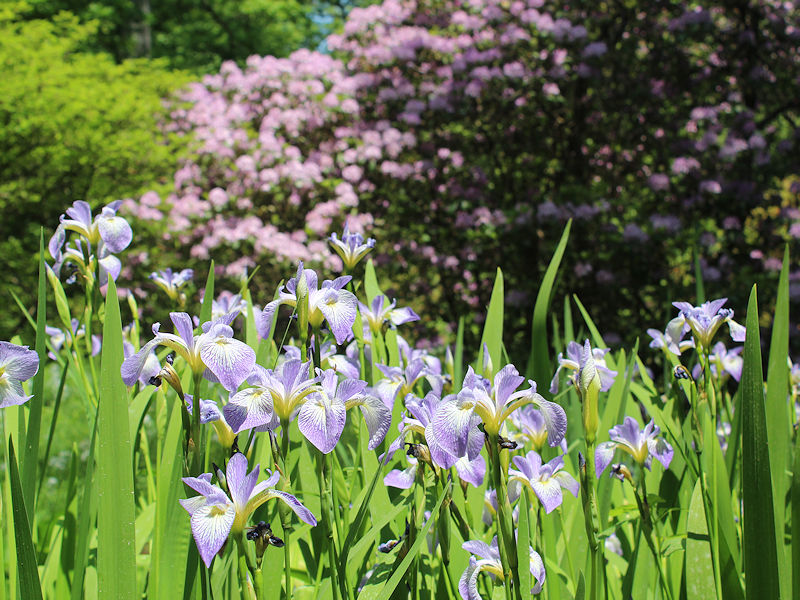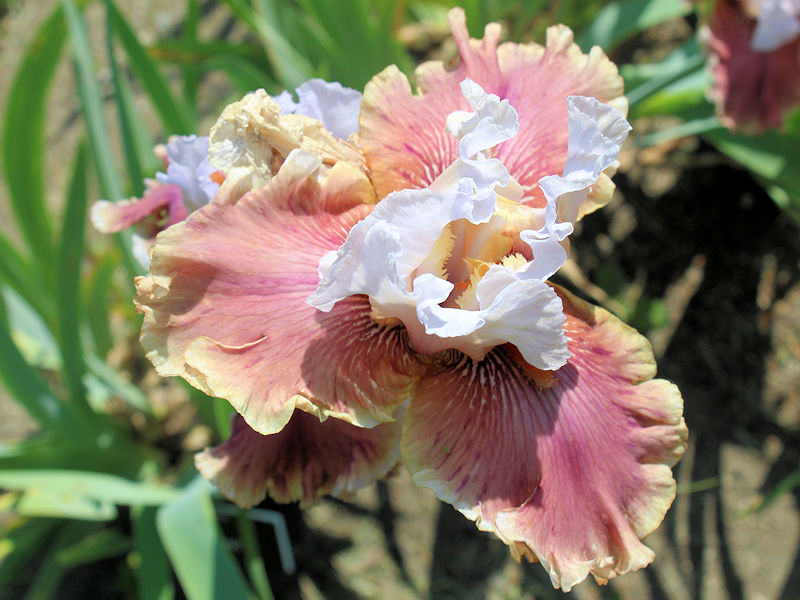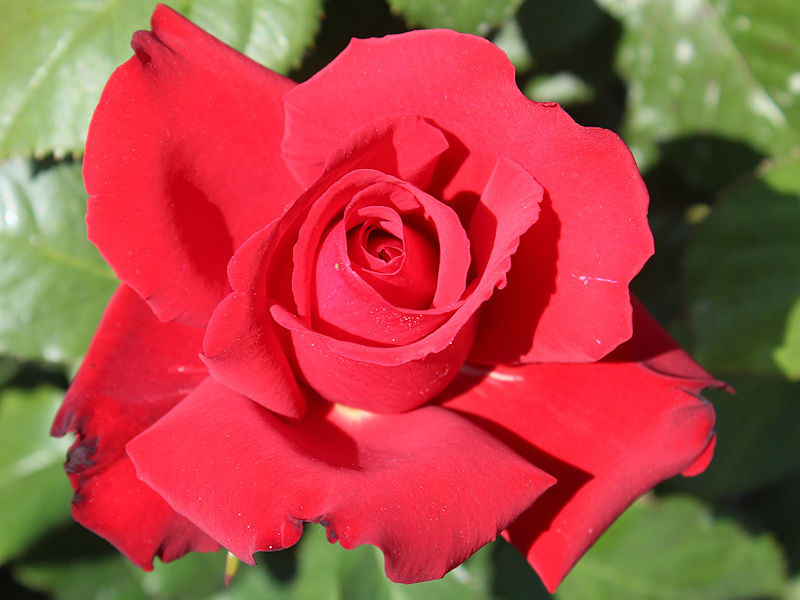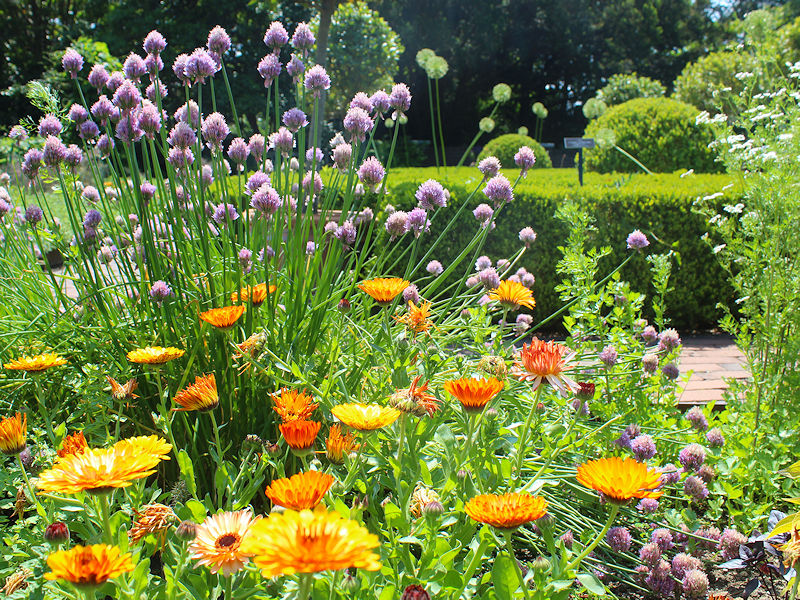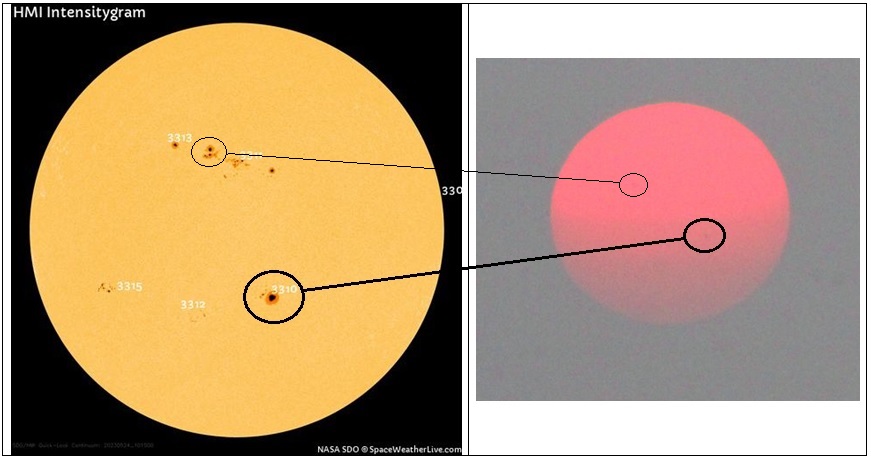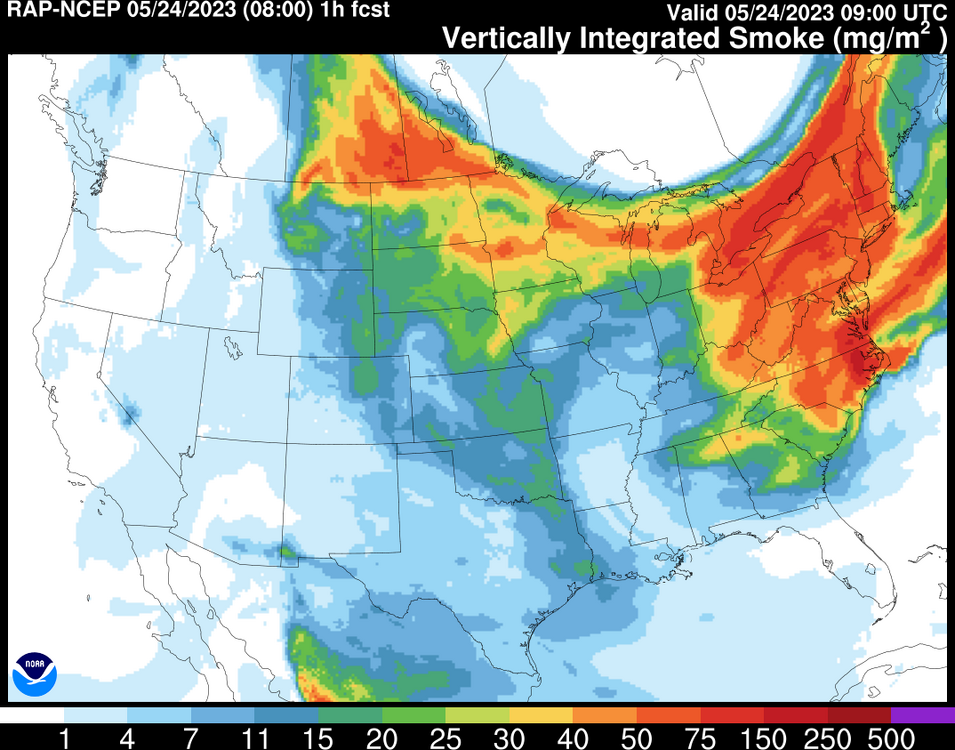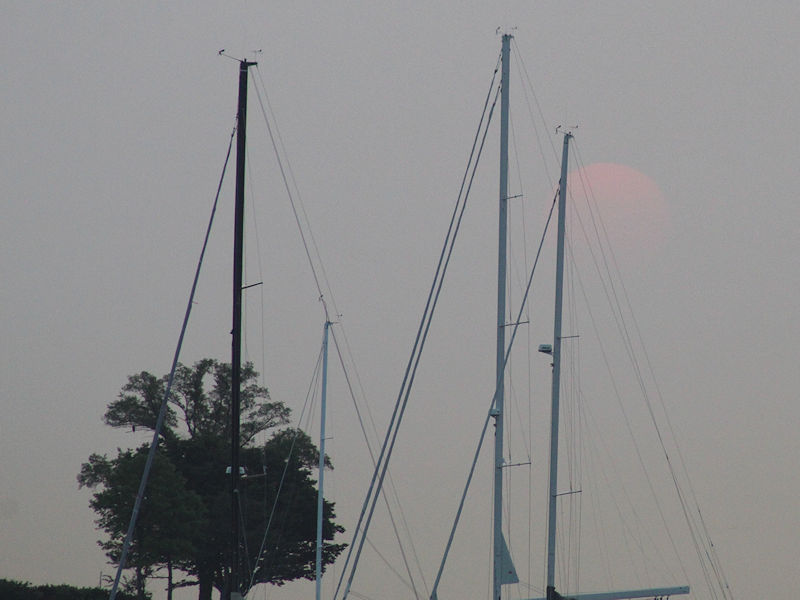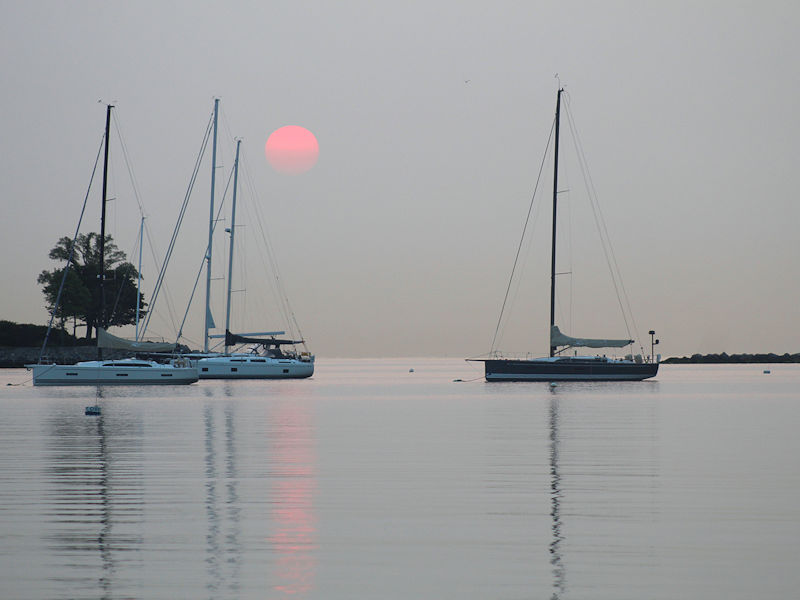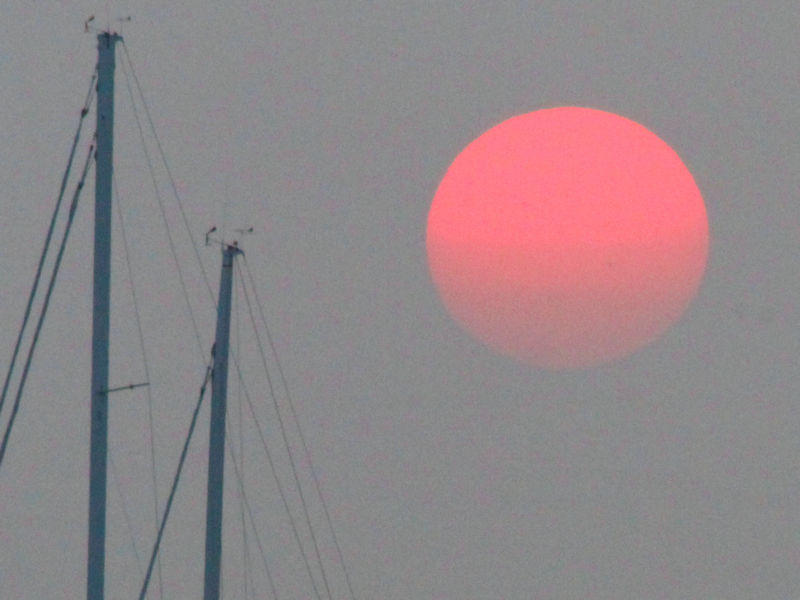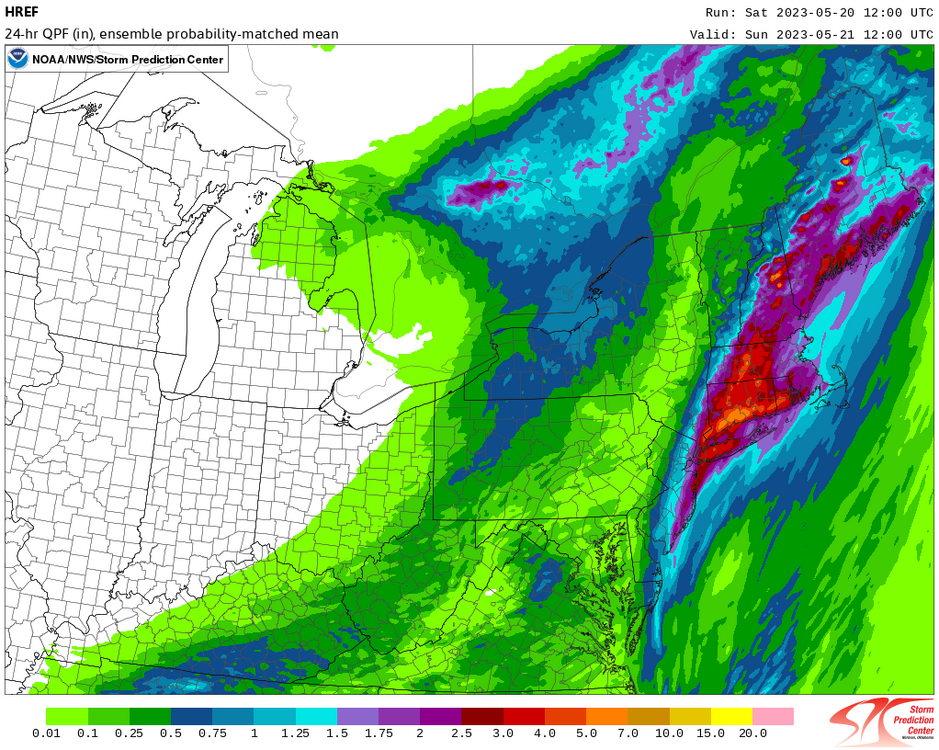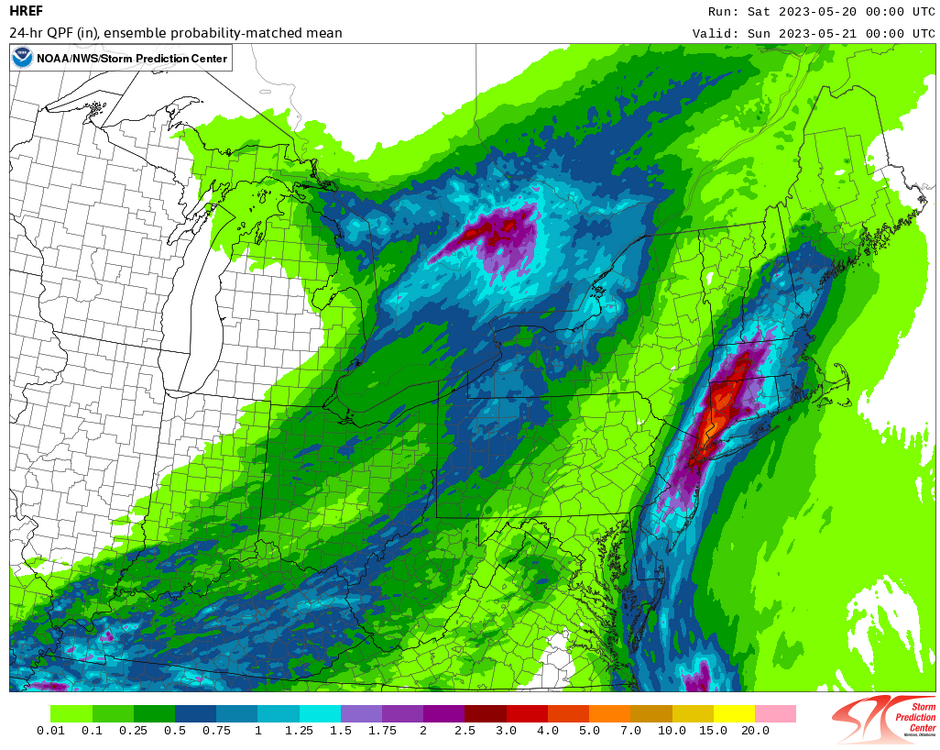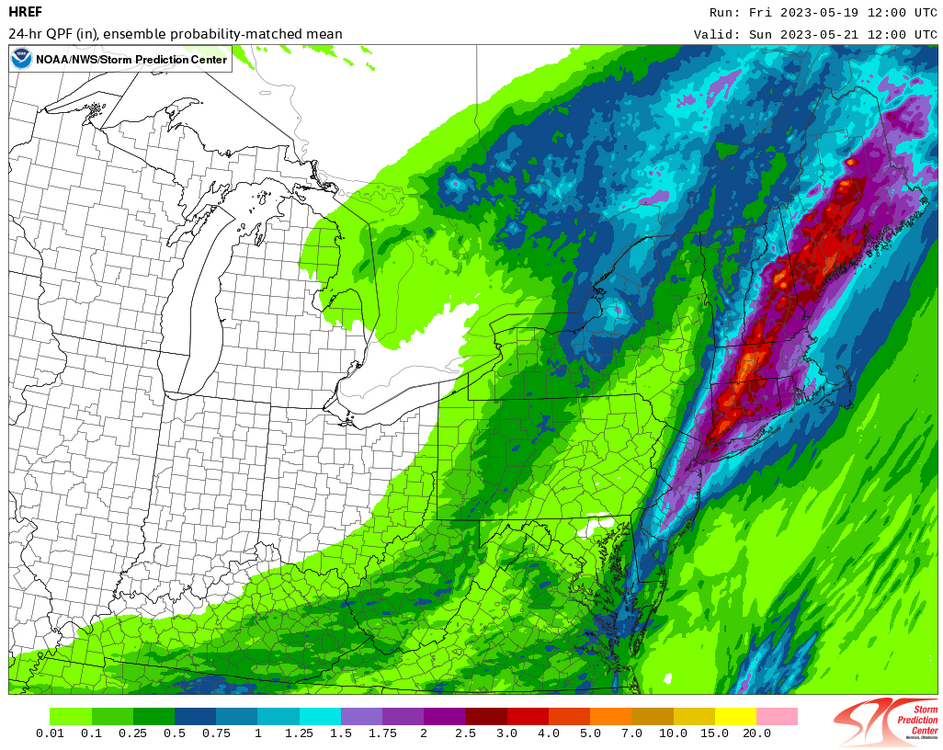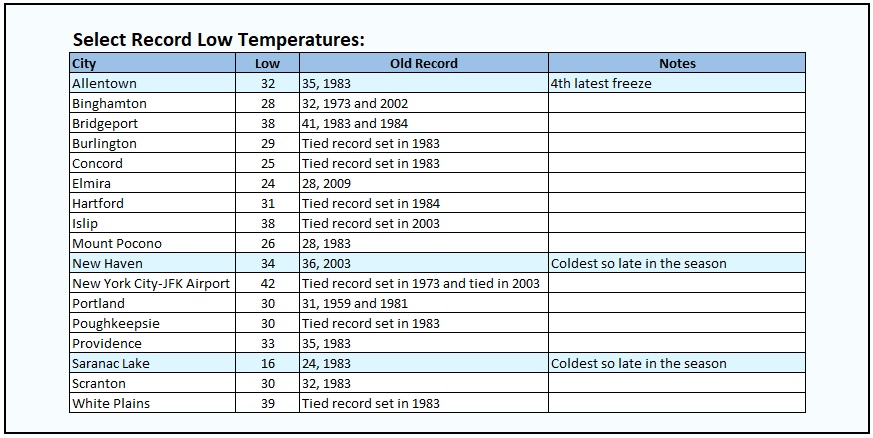-
Posts
22,981 -
Joined
Content Type
Profiles
Blogs
Forums
American Weather
Media Demo
Store
Gallery
Everything posted by donsutherland1
-
Temperatures will begin to rebound tomorrow. June will start with above normal temperatures, but a trough will likely develop leading to a return of cooler conditions shortly afterward. The latest ECMWF weeklies suggest that sustained warmer than normal conditions could develop during or after the second week of June. Typically, a very warm April is followed by a somewhat cooler than normal May in the Middle Atlantic region. The latest data suggests that May 2023 is now extremely likely to wind up somewhat cooler than normal. The ENSO Region 1+2 anomaly was +2.0°C and the Region 3.4 anomaly was +0.4°C for the week centered around May 24. For the past six weeks, the ENSO Region 1+2 anomaly has averaged +2.28°C and the ENSO Region 3.4 anomaly has averaged +0.42°C. El Niño conditions will very likely develop during the summer. The SOI was -15.45 today. The preliminary Arctic Oscillation (AO) was +1.057 today. On May 28 the MJO was not available. The May 27-adjusted amplitude was 1.796 (RMM). Based on sensitivity analysis applied to the latest guidance, there is an implied nera 100% probability that New York City will have a cooler than normal May (1991-2020 normal). May will likely finish with a mean temperature near 62.8° (0.4° below normal).
-
Tomorrow will be somewhat cooler in the Middle Atlantic region, but temperatures will begin to rebound on Wednesday. June could start with above normal temperatures, but a trough will likely develop leading to a return of cooler conditions shortly afterward. The latest ECMWF weeklies suggest that sustained warmer than normal conditions could develop during or after the second week of June. Typically, a very warm April is followed by a somewhat cooler than normal May in the Middle Atlantic region. The latest data suggests that May 2023 is now extremely likely to wind up somewhat cooler than normal. The ENSO Region 1+2 anomaly was +2.0°C and the Region 3.4 anomaly was +0.4°C for the week centered around May 24. For the past six weeks, the ENSO Region 1+2 anomaly has averaged +2.28°C and the ENSO Region 3.4 anomaly has averaged +0.42°C. El Niño conditions will very likely develop during the summer. The SOI was -0.82 today. The preliminary Arctic Oscillation (AO) was +1.369 today. On May 27 the MJO was in Phase 7 at an amplitude of 1.796 (RMM). The May 26-adjusted amplitude was 1.803 (RMM). Based on sensitivity analysis applied to the latest guidance, there is an implied 93% probability that New York City will have a cooler than normal May (1991-2020 normal). May will likely finish with a mean temperature near 62.8° (0.4° below normal).
-
The combination of brilliant sunshine, warm temperatures, and a refreshing breeze made for a spectacular day at the New York Botanical Garden. Some photos:
- 709 replies
-
- 11
-

-
Under mainly sunny skies, temperatures rose into the upper 70s with some lower 80s. The generally warm and dry weather continue through the Memorial Day Holiday. Across central and upstate New York and central and northern New England, hot weather prevailed. High temperatures there included: Albany: 90° Bangor: 91° (old record: 90°, 1959) Boston: 86° Burlington: 89° Caribou: 86° Concord: 91° Hartford: 87° Manchester: 92° Portland: 89° Tuesday and Wednesday will be somewhat cooler days in the Middle Atlantic region. However, June could start with above normal temperatures, but a trough will likely develop leading to a return of cooler conditions shortly afterward. Typically, a very warm April is followed by a somewhat cooler than normal May in the Middle Atlantic region. The latest data suggests that May 2023 has a better than 2-in-3 chance of winding up somewhat cooler than normal. June could start off with very warm readings. Parts of the Middle Atlantic region could see the temperature approach or reach 90° on one or more days. The ENSO Region 1+2 anomaly was +1.7°C and the Region 3.4 anomaly was +0.5°C for the week centered around May 17. For the past six weeks, the ENSO Region 1+2 anomaly has averaged +2.40°C and the ENSO Region 3.4 anomaly has averaged +0.37°C. Neutral ENSO conditions will likely prevail through at least mid-spring. El Niño conditions will very likely develop during the summer. The SOI was +6.22 today. The preliminary Arctic Oscillation (AO) was +1.895 today. On May 26 the MJO was in Phase 7 at an amplitude of 1.802 (RMM). The May 25-adjusted amplitude was 2.143 (RMM). Based on sensitivity analysis applied to the latest guidance, there is an implied 71% probability that New York City will have a cooler than normal May (1991-2020 normal). May will likely finish with a mean temperature near 62.8° (0.4° below normal).
-
Both yesterday and 9/22/1897 were extraordinary days, especially as records go back to 1874. The information you provided is terrific.
-
Today is only the second day on which Savannah set or tied daily records for precipitation, lowest maximum temperature, and lowest minimum temperature on the same date. The only other date was September 22, 1897 when 2.30" of rain fell, the low was 46 and the high was 54.
-
A strong storm with a warm core but frontal boundaries rendering it non-tropical brought heavy rain and unseasonably cool conditions to parts of the Southeast. At Savannah, the daily low temperature was 53°, which tied the daily record set in 1961. The high temperature so far has been 61°, which is well below the record low maximum temperature of 68° from 1972. Rainfall has amounted to 1.38", which broke the old record of 1.25" from 1996. In the northern Middle Atlantic region, sunshine and warm temperatures prevailed. The generally warm and dry weather will likely continue through the weekend and Memorial Day Holiday. Typically, a very warm April is followed by a somewhat cooler than normal May in the Middle Atlantic region. The latest data suggests that May 2023 has a better than 2-in-3 chance of winding up somewhat cooler than normal. June could start off with very warm readings. Parts of the Middle Atlantic region could see the temperature approach or reach 90° on one or more days. The ENSO Region 1+2 anomaly was +1.7°C and the Region 3.4 anomaly was +0.5°C for the week centered around May 17. For the past six weeks, the ENSO Region 1+2 anomaly has averaged +2.40°C and the ENSO Region 3.4 anomaly has averaged +0.37°C. Neutral ENSO conditions will likely prevail through at least mid-spring. El Niño conditions will very likely develop during the summer. The SOI was -2.05 today. The preliminary Arctic Oscillation (AO) was +1.660 today. On May 25 the MJO was in Phase 7 at an amplitude of 2.137 (RMM). The May 24-adjusted amplitude was 2.106 (RMM). Based on sensitivity analysis applied to the latest guidance, there is an implied 69% probability that New York City will have a cooler than normal May (1991-2020 normal). May will likely finish with a mean temperature near 62.9° (0.3° below normal).
-
The weekend will get off to a dry and warm start. Temperatures should top out in the middle and upper 70s across the region. The warming trend will continue through the weekend. Meanwhile, an area running along the South Carolina and North Carolina coastlines will see heavy windswept rain. Both Myrtle Beach and Wilmington could see record daily rainfall for May 27. Myrtle's record of 2.25" was set in 2020. Wilmington's mark of 3.02" was set in 1960. Typically, a very warm April is followed by a somewhat cooler than normal May in the Middle Atlantic region. The latest data suggests that May 2023 has a better than 2-in-3 chance of winding up somewhat cooler than normal. June could start off with very warm readings. Parts of the Middle Atlantic region could see the temperature approach or reach 90° on one or more days. The ENSO Region 1+2 anomaly was +1.7°C and the Region 3.4 anomaly was +0.5°C for the week centered around May 17. For the past six weeks, the ENSO Region 1+2 anomaly has averaged +2.40°C and the ENSO Region 3.4 anomaly has averaged +0.37°C. Neutral ENSO conditions will likely prevail through at least mid-spring. El Niño conditions will very likely develop during the summer. The SOI was -20.89 today. The preliminary Arctic Oscillation (AO) was +1.285 today. On May 24 the MJO was in Phase 7 at an amplitude of 2.105 (RMM). The May 23-adjusted amplitude was 1.851 (RMM). Based on sensitivity analysis applied to the latest guidance, there is an implied 69% probability that New York City will have a cooler than normal May (1991-2020 normal). May will likely finish with a mean temperature near 62.9° (0.3° below normal).
-
Tomorrow will be fair somewhat milder. The temperature will top out in the lower 70s. The warming trend will continue through the weekend. Typically, a very warm April is followed by a somewhat cooler than normal May in the Middle Atlantic region. With the guidance now showing a late week cool shot, the probability of a somewhat cooler than normal May has continued to increase. The ENSO Region 1+2 anomaly was +1.7°C and the Region 3.4 anomaly was +0.5°C for the week centered around May 17. For the past six weeks, the ENSO Region 1+2 anomaly has averaged +2.40°C and the ENSO Region 3.4 anomaly has averaged +0.37°C. Neutral ENSO conditions will likely prevail through at least mid-spring. El Niño conditions will very likely develop during the summer. The SOI was -45.48 today. The preliminary Arctic Oscillation (AO) was +1.296 today. On May 23 the MJO was in Phase 7 at an amplitude of 1.850 (RMM). The May 22-adjusted amplitude was 1.479 (RMM). Based on sensitivity analysis applied to the latest guidance, there is an implied 62% probability that New York City will have a cooler than normal May (1991-2020 normal). May will likely finish with a mean temperature near 63.0° (0.2° below normal).
-
An evening shower in some locations will usher in a noticeably cooler air mass. Overnight, readings will fall into the upper 40s and lower 50s in and near New York City and Newark. Outside the cities temperatures will fall into the lower and middle 40s. A few of the colder areas could see temperatures bottom out in the upper 30s. Tomorrow will be fair and cool for the season. The temperature will top out in the upper 60s to around 70°. Readings will likely remain below normal through the start of the weekend. Typically, a very warm April is followed by a somewhat cooler than normal May in the Middle Atlantic region. With the guidance now showing a late week cool shot, the probability of a somewhat cooler than normal May has continued to increase. The ENSO Region 1+2 anomaly was +1.7°C and the Region 3.4 anomaly was +0.5°C for the week centered around May 17. For the past six weeks, the ENSO Region 1+2 anomaly has averaged +2.40°C and the ENSO Region 3.4 anomaly has averaged +0.37°C. Neutral ENSO conditions will likely prevail through at least mid-spring. El Niño conditions will very likely develop during the summer. The SOI was -64.63 today. That is the lowest figure since the SOI plunged to -80.41 on February 5, 2010. The preliminary Arctic Oscillation (AO) was +1.792 today. On May 22 the MJO was in Phase 7 at an amplitude of 1.476 (RMM). The May 21-adjusted amplitude was 1.274 (RMM). Based on sensitivity analysis applied to the latest guidance, there is an implied 54% probability that New York City will have a cooler than normal May (1991-2020 normal). May will likely finish with a mean temperature near 63.0° (0.2° below normal).
-
- 709 replies
-
- 11
-

-

-
Very thick smoke from the wildfires in Alberta cloaked the sunrise in the New York City region this morning.
- 709 replies
-
- 12
-

-

-
Tomorrow will be partly cloudy and warm ahead of a push of cooler air. Some widely scattered showers are possible. Afterward, cooler air will overspread the region. Readings will likely remain below normal through the start of the weekend. Typically, a very warm April is followed by a somewhat cooler than normal May in the Middle Atlantic region. With the guidance now showing a late week cool shot, the probability of a somewhat cooler than normal May has continued to increase. The ENSO Region 1+2 anomaly was +1.7°C and the Region 3.4 anomaly was +0.5°C for the week centered around May 17. For the past six weeks, the ENSO Region 1+2 anomaly has averaged +2.40°C and the ENSO Region 3.4 anomaly has averaged +0.37°C. Neutral ENSO conditions will likely prevail through at least mid-spring. El Niño conditions will very likely develop during the summer. The SOI was -61.80 today. That is the lowest figure since the SOI plunged to -80.41 on February 5, 2010. The preliminary Arctic Oscillation (AO) was +1.712 today. On May 21 the MJO was in Phase 6 at an amplitude of 1.267 (RMM). The May 20-adjusted amplitude was 1.495 (RMM). Based on sensitivity analysis applied to the latest guidance, there is an implied 52% probability that New York City will have a cooler than normal May (1991-2020 normal). May will likely finish with a mean temperature near 63.0° (0.2° below normal).
-
Tomorrow will be fair and pleasant with readings reaching the upper 60s and lower 70s. After mid-week, cooler air will overspread the region. Typically, a very warm April is followed by a somewhat cooler than normal May in the Middle Atlantic region. With the guidance now showing a late week cool shot, the probability of a somewhat cooler than normal May has continued to increase. The ENSO Region 1+2 anomaly was +1.7°C and the Region 3.4 anomaly was +0.5°C for the week centered around May 17. For the past six weeks, the ENSO Region 1+2 anomaly has averaged +2.40°C and the ENSO Region 3.4 anomaly has averaged +0.37°C. Neutral ENSO conditions will likely prevail through at least mid-spring. El Niño conditions will very likely develop during the summer. The SOI was -43.11 today. The preliminary Arctic Oscillation (AO) was +1.449 today. On May 20 the MJO was in Phase 6 at an amplitude of 1.478 (RMM). The May 19-adjusted amplitude was 1.870 (RMM). Based on sensitivity analysis applied to the latest guidance, there is an implied 55% probability that New York City will have a cooler than normal May (1991-2020 normal). May will likely finish with a mean temperature near 62.8° (0.4° below normal).
-
Tomorrow will be fair and mild with readings reaching the lower and middle 70s. After mid-week, cooler air will overspread the region. Typically, a very warm April is followed by a somewhat cooler than normal May in the Middle Atlantic region. With the guidance now showing a late week cool shot, the probability of a somewhat cooler than normal May has increased. The ENSO Region 1+2 anomaly was +2.4°C and the Region 3.4 anomaly was +0.5°C for the week centered around May 10. For the past six weeks, the ENSO Region 1+2 anomaly has averaged +2.57°C and the ENSO Region 3.4 anomaly has averaged +0.28°C. Neutral ENSO conditions will likely prevail through at least mid-spring. El Niño conditions will very likely develop during the summer. The SOI was -25.87 today. The preliminary Arctic Oscillation (AO) was +2.162 today. On May 19 the MJO was in Phase 6 at an amplitude of 1.853 (RMM). The May 18-adjusted amplitude was 2.018 (RMM). Based on sensitivity analysis applied to the latest guidance, there is an implied 52% probability that New York City will have a cooler than normal May (1991-2020 normal). May will likely finish with a mean temperature near 63.0° (0.2° below normal).
-
Some additional rain and showers are likely overnight before the clouds yield to sunshine and warmer readings tomorrow. Through 8 pm, rainfall totals included: Boston: 0.61" Bridgeport: 2.26" (old record: 1.60", 1973) Hartford: 1.64" (old record: 1.25", 1969) Islip: 1.53" (old record: 1.47", 1972) New Haven: 1.67" New York City-Central Park: 0.77" New York City-JFK Airport: 1.65" (old record: 1.46", 1972) New York City-LaGuardia Airport: 1.26" Providence: 1.21" White Plains: 1.48" Worcester: 1.04" (old record: 1.03", 1892) Temperatures will likely remain near or somewhat above normal through midweek before cooler air moves in for a time. Some of the guidance suggests that temperatures could return to the 80s to close the month. Typically, a very warm April is followed by a somewhat cooler than normal May in the Middle Atlantic region. The ENSO Region 1+2 anomaly was +2.4°C and the Region 3.4 anomaly was +0.5°C for the week centered around May 10. For the past six weeks, the ENSO Region 1+2 anomaly has averaged +2.57°C and the ENSO Region 3.4 anomaly has averaged +0.28°C. Neutral ENSO conditions will likely prevail through at least mid-spring. El Niño conditions will very likely develop during the summer. The SOI was -11.32 today. The preliminary Arctic Oscillation (AO) was +2.689 today. On May 18 the MJO was in Phase 6 at an amplitude of 2.017 (RMM). The May 17-adjusted amplitude was 1.804 (RMM). Based on sensitivity analysis applied to the latest guidance, there is an implied 50% probability that New York City will have a warmer than normal May (1991-2020 normal). May will likely finish with a mean temperature near 63.2° (normal).
-
Latest HREF: Rainfall totals through 12 pm include: Bridgeport: 0.31"; Islip: 1.08"; New Haven: 0.52"; New York City-JFK: 0.29"; and Westhampton: 0.83"
-
-
Readings will continue to warm during the weekend, but a significant rainfall is likely across much of the region tomorrow into Sunday. The region will likely see a general 1"-2" of rain with locally higher amounts. A stripe of 2"-4" of rain is possible across parts of New England. It should be noted that both the operational ECMWF and its ensemble members show very little rain for the New York City area. However, at this range, the HREF often has a better handle, though it could be somewhat overdone. Some of the guidance suggests that temperatures could return to the 80s to close the month. Typically, a very warm April is followed by a somewhat cooler than normal May in the Middle Atlantic region. Nevertheless, the guidance has persistently suggested that the month will end with a somewhat warmer than normal average. The ENSO Region 1+2 anomaly was +2.4°C and the Region 3.4 anomaly was +0.5°C for the week centered around May 10. For the past six weeks, the ENSO Region 1+2 anomaly has averaged +2.57°C and the ENSO Region 3.4 anomaly has averaged +0.28°C. Neutral ENSO conditions will likely prevail through at least mid-spring. El Niño conditions will very likely develop during the summer. The SOI was -9.48 today. The preliminary Arctic Oscillation (AO) was +2.585 today. On May 17 the MJO was in Phase 6 at an amplitude of 1.458 (RMM). The May 16-adjusted amplitude was 1.765 (RMM). Based on sensitivity analysis applied to the latest guidance, there is an implied 53% probability that New York City will have a warmer than normal May (1991-2020 normal). May will likely finish with a mean temperature near 63.3° (0.1° above normal).
-
-
Unseasonably cool readings prevailed following a morning with near record and record cold. However, the coldest air is now in the past. Slow moderation will commence tomorrow. Readings will continue to warm during the weekend, but rain is possible. Parts of the region could see a general 0.25"-0.75" of rain with some higher amounts. A stripe of 1"-2" of rain is possible across eastern New England. Some of the guidance suggests that temperatures could return to the 80s to close the month. Typically, a very warm April is followed by a somewhat cooler than normal May in the Middle Atlantic region. Nevertheless, the guidance has persistently suggested that the month will end with a somewhat warmer than normal average. The ENSO Region 1+2 anomaly was +2.4°C and the Region 3.4 anomaly was +0.5°C for the week centered around May 10. For the past six weeks, the ENSO Region 1+2 anomaly has averaged +2.57°C and the ENSO Region 3.4 anomaly has averaged +0.28°C. Neutral ENSO conditions will likely prevail through at least mid-spring. El Niño conditions will very likely develop during the summer. The SOI was -9.86 today. The preliminary Arctic Oscillation (AO) was +2.333 today. On May 16 the MJO was in Phase 6 at an amplitude of 1.765 (RMM). The May 15-adjusted amplitude was 1.458 (RMM). Based on sensitivity analysis applied to the latest guidance, there is an implied 53% probability that New York City will have a warmer than normal May (1991-2020 normal). May will likely finish with a mean temperature near 63.3° (0.1° above normal).
-
-
Numerous records have been set or tied, including Allentown, Bridgeport, Islip (tied), New Haven, and White Plains (tied).
-
Tonight will be an unseasonably cool night. Areas well to the north and west of New York City could even experience some light frost. In the City and nearby areas, readings will bottom out in the lower and middle 40s before rising to the lower 60s. A few locations including Bridgeport and White Plains could approach or set new daily record low readings. Records include: Bridgeport: 41°, 1983 and 1984 Islip: 38°, 2003 New Haven: 36°, 2003 Newark: 43°, 1955, 1983 and 2003 Poughkeepsie: 30°, 1983 White Plains: 39°, 1983 Readings will warm during the weekend, but some rain is possible. Some of the guidance suggests that temperatures could return to the 80s to close the month. Typically, a very warm April is followed by a somewhat cooler than normal May in the Middle Atlantic region. Nevertheless, the guidance has persistently suggested that the month will end with a somewhat warmer than normal average. The ENSO Region 1+2 anomaly was +2.4°C and the Region 3.4 anomaly was +0.5°C for the week centered around May 10. For the past six weeks, the ENSO Region 1+2 anomaly has averaged +2.57°C and the ENSO Region 3.4 anomaly has averaged +0.28°C. Neutral ENSO conditions will likely prevail through at least mid-spring. El Niño conditions will very likely develop during the summer. The SOI was -11.40 today. The preliminary Arctic Oscillation (AO) was +1.964 today. On May 15 the MJO was in Phase 6 at an amplitude of 1.462 (RMM). The May 14-adjusted amplitude was 1.181 (RMM). Based on sensitivity analysis applied to the latest guidance, there is an implied 54% probability that New York City will have a warmer than normal May (1991-2020 normal). May will likely finish with a mean temperature near 63.4° (0.2° above normal).




